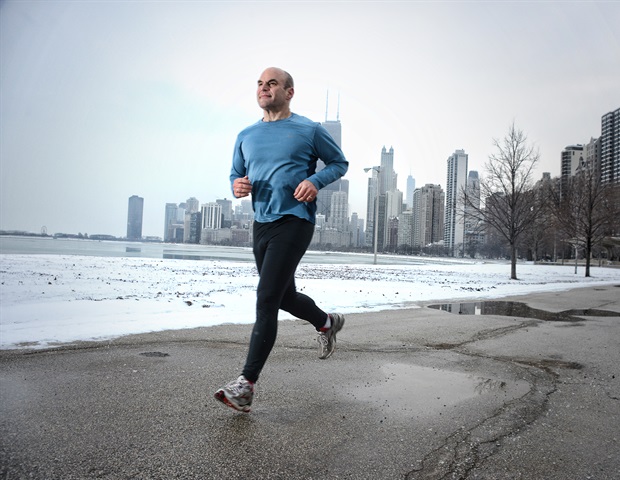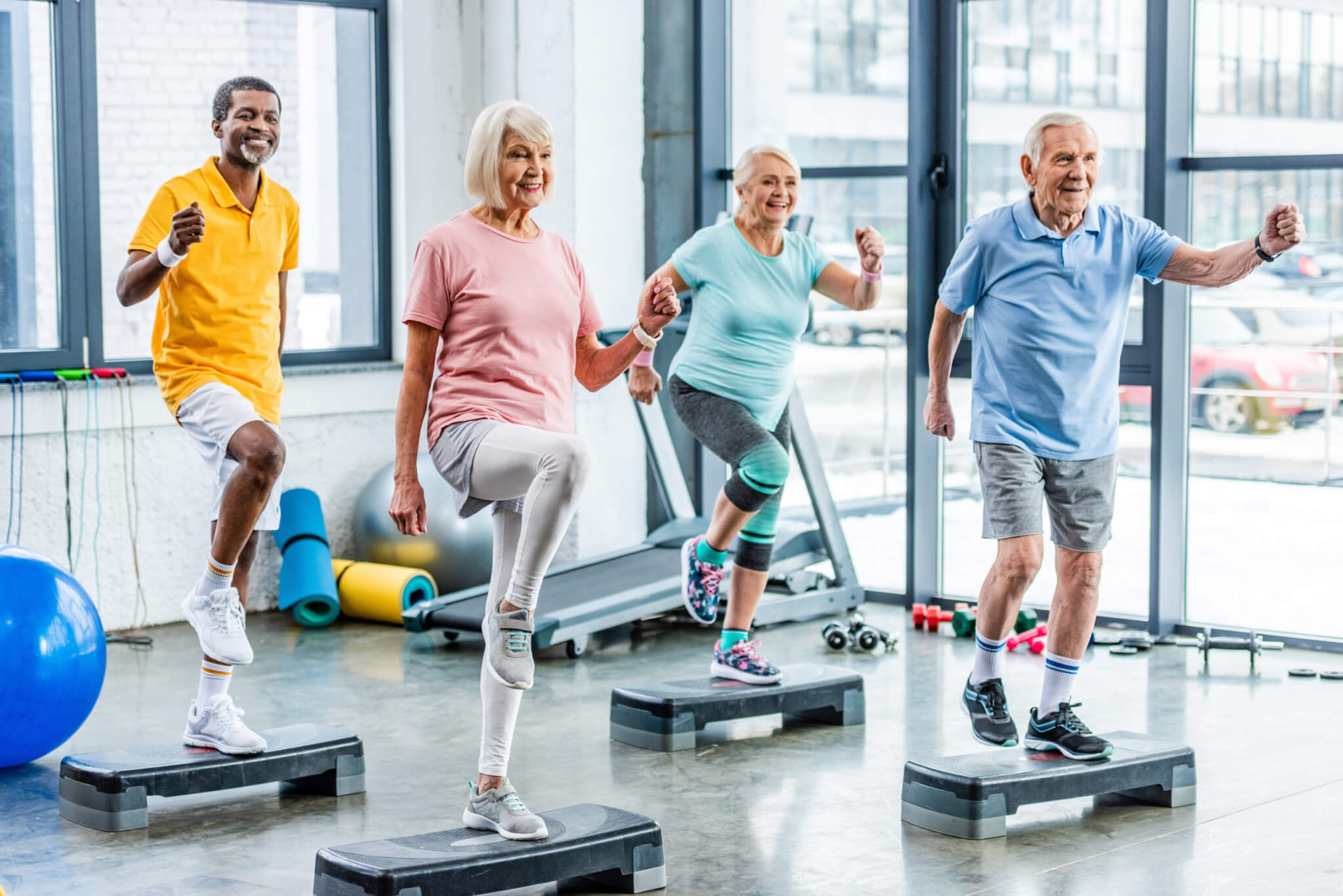Fitness
BTS Jungkook birthday special: Golden maknae’s fitness routine decoded, from workout to diet tips

Remember the last time South Korean boy band BTS or Bangtan Boys’ youngest member and vocalist, Jeon Jungkook, was out-of-shape? Yup, we neither and though BTS Army can’t stop drooling over the bare back picture Park Jimin shared on Instagram to wish the golden maknae a ‘happy birthday JK’, it seems like we have always seen the K-pop star in his chiseled physique and rock-solid abs. Born on September 1, 1997, in South Korea’s Busan, Jungkook celebrates his 26th birthday this Friday and as the Internet floods with his pictures and videos, we couldn’t help but round up the health advices that the Calvin Klein ambassador has been sharing with his fans over LIVEs and interviews.
For the people who do not follow Jungkook (what are you doing with your lives?), his desired level of fitness stems from his consistency in workouts, combined with a balanced diet, the absence of cheat meals and commitment to a healthy lifestyle that helps him maintain his sultry physique. Earlier this year on Weverse, Jungkook talked about things he always does before going to bed and hoped that it would benefit the BTS ARMY whom he never fails to win over.
Sharing his secret to a good sleep, he said, “When you stray from your cycle, like if you sleep in the morning or late at night, you wouldn’t be sleepy at night if you woke up late. Then, the next day even if I’m a bit sleepy I try to stay awake till the night. I try to stay awake until I pass out at night. I usually have my room at the ideal temperature. I can’t sleep if it’s too hot or too cold.”
When talking about the nap style, the fitness enthusiast recommended, “Don’t sleep right after eating. It’s really bad for your stomach. Relax for a moment and slowly fall asleep. Given a choice between basic stretching and intense ab crunches, Jungkook suggested basic stretching workout before bed.
During a VLive last year in June, an ARMY asked, “Oppa, How can I lose weight?” Quick to encourage her with his daily exercise routine, Jungkook replied, “When you wake up, do 100 squats, then immediately move into 30 repeats of an ab workout, then lunges, 2 sets x 20 lunges, 1 minute plank, 1 minute on each left and right side and 15x burp test. It’s easy to lose weight, right?”
In another interview with Weverse in May 2022, Jungkook wished that ARMY can take care of themselves during their downtime and advised, “I hope everyone stays healthy. Some will go outdoors on the weekend, while others choose to stay in. If you are not active enough, you will feel tried and sluggish. So, you should eat healthy, maybe have a salad two or three times a week and I’m sure everyone will be in tip top shape! ARMY forever, BTS forever!”
When BTS performed on Waktu Indonesia Belanja for Tokopedia in 2020, fans couldn’t help noticing Jungkook’s physique and were thankful for the interview host who host asked Kookie the secret to getting such a strong body. Jungkook had answered, “I do have equipment but I prefer to exercise with my own body weight. I think it’s important to do it consistently whenever you have time. I think you can maintain a good body just by doing pushups, situps and squats.”
Jungkook loves health and fitness and hopes that his fans can do the same. His approach to a balanced and healthy lifestyle, including mental health awareness, is really inspiring so, whether you stan BTS or are simply looking for Friday fitness inspiration, here are the signs to roll out your workout mats and hit the grind today!

Fitness
From strength training in your 20s to yoga in your 80s: how to reach peak fitness at any age

When Baz Luhrmann called the body “the greatest instrument you’ll ever own” in his 1997 song, Everybody’s Free (to Wear Sunscreen), he was on to something. Alongside a nutritious diet and good sleep, how fit we are is perhaps our greatest tool to live a long and healthy life. But what constitutes optimum physical fitness? According to David Vaux, osteopath and author of Stronger: 10 Exercises for a Longer, Healthier Life, it’s measured across different pillars of health, including cardiovascular fitness, flexibility, strength, mobility, stability and balance.
Research shows that those who do regular exercise are less likely to succumb to premature death, as well as reducing the risk of developing a number of diseases, including type 2 diabetes, cardiovascular disease and mental health disorders. But fitness is about much more than just warding off ill health. Being able to move functionally – whether that’s picking up our grandchildren, hauling boxes around or going on long hikes – is crucial to enjoying life and feeling energised, mobile and able to take care of ourselves into our later decades.
The old adage “use it or lose it” couldn’t be more applicable, but where to start? Here’s how to reach peak fitness in every decade of your adult life.
20s: focus on functional moves
Your body is adaptable and hormones are on your side, so focus on building lean muscle mass and a healthy nervous system with a broad diet of activity.
From contact sports to tennis, sprinting and hiking, making movement a consistent habit is helpful for long-term adherence, with strength training – any form of exercise that involves lifting weights or resistance (including body weight) to build muscle – a priority to stimulate bone growth and density.
“This is important because bone health at age 30 determines what it will be in later life,” says consultant physiotherapist Florence Penny. Aerobic capacity naturally declines in our mid-30s, so do plenty of walking, running and/or jogging to create a higher baseline and ensure your heart, lungs and muscles are stronger and more efficient. The improvements you make at this age will remain well into your later decades.
The sky’s the limit for peak fitness in this decade, but Vaux says that if you can nail the foundational movements – including the shoulder pull, press-up, plank, squat and lunge – using just your body weight, then you’re off to an excellent start. Aim to complete four to five sets of eight to 12 reps. You can add weights afterwards – if you can do a minimum of three squats with a weight equivalent to your body and overhead press three-quarters of your body weight, you’re doing well. Test your aerobic fitness by doing a 1½-mile run; women and men should aim for 13 and 11 minutes, respectively.
30s: hiit training is a great option
Strength training becomes more critical to guard against natural muscle depletion and keep metabolic health strong. “Focus on compound movements – think squats, dead lifts, push/pull movements and carries – to work multiple muscle groups at once,” says personal trainer and performance coach Niki Bird, adding that you should work out about four times a week for between 30 and 60 minutes. Concentrate on building power by adding fast spurts of these movements using lighter dumbbells during your sessions.
Make sure you get your cardio in, too – it’s great for energy, recovery and reducing risk of cardiovascular and respiratory diseases. When performed properly (at 80% effort during “work” phases) high-intensity interval training (Hiit) is a great option for the time-poor and can improve hormonal responses and boost fitness, without putting the body under excessive stress. Although rather odious, sprint intervals – 30 seconds sprinting, 90 seconds walking – are incredible for quick improvements, especially when done twice a week.
To test your fitness? “Aim to hold a 60-second plank, perform 10-15 full push-ups and deadlift your body weight (ie those who are 75kg should build up to that), with strong awareness of doing the movement correctly,” says Penny. One study found that the more press-ups individuals could do in a minute, the less likely they were to suffer from cardiovascular disease – those who could do 40 saw a huge 96% reduction in risk.
40s: try a ‘grip and lean’
It is about the age of 40 that our muscle mass really starts to decline – at 3-8% each decade. The key is to continue (or start, if you haven’t already) with strength training, while ensuring minor injuries including tightness, aches and pains, get treated professionally.
“With hormonal shifts, energy fluctuations and changes in metabolism, this decade is about working smarter, not harder, and focusing on workouts that deliver maximum benefits,” says Penny. “Lift weights regularly and incorporate lower impact cardio options, such as cycling, rowing and swimming, to protect joints.”
Grip strength is an excellent indicator of how fit you are in your 40s. “It is independently associated with longevity and health span,” says Vaux. Try a “grip and lean”, an isometric exercise in which you tie a towel or firm band around a banister and lean back with straight arms – start with two sets of 15-30 seconds, and build up to two minutes. When you can do that, upgrade to an overhead bar hang – a minute and a half is a great target for women, while men should aim for two.
50s: incorporate eccentric exercise
If you can do 10 controlled body-weight squats and walk 400 metres in under six minutes, you’re on track for optimal fitness in your 50s. “The ageing process is notable by this decade, with most people experiencing natural sarcopenia (loss of skeletal muscle mass), and a decrease in maximum strength, power and metabolism as a result,” says Penny. The perimenopause in women and a drop in testosterone in men mean that building muscle and quick recovery after a workout are harder than before.
Do not slow down – midlife is a pivotal time and dictates how you’ll fare in later life – but rather, train with intention. Continue with regular resistance training, ensure you’re doing some Hiit to keep cardio health high, and honour two rest days a week.
Challenge yourself with a farmer’s carry, which involves holding and walking with kettlebells or dumbbells by your sides for a minute to improve core and shoulder stability and grip strength. Women and men should aspire to carry 75% and 100% of their body weight (half in each hand) respectively, says Vaux, who adds that you have to build up to it.
after newsletter promotion
60s: the ‘old man’ test
Those who have been active over the years may already have a solid foundation in this decade, but if you don’t, it’s never too late. Assess yourself using the 60-second “old man” test, which is a good indicator of functional strength, balance, coordination and flexibility: “If you have a stiff back or hips, then it’s tricky,” says Vaux. Lift one bare foot, put on a sock and shoe, then tie your shoelaces while it’s still elevated. Repeat on the other side. If you can do both sides with ease (and without dropping your foot) you’re doing well.
If you find it tricky, now might be the time to incorporate more mobility, balance and fall prevention work into your routine. That could be lifting alternate legs up while you clean your teeth, or trying some tai chi which is gentle but great for balance. Bird also recommends including isometric exercises (where you hold a static position) to improve tissue health and strength – try a wall sit for 45 seconds, holding your legs in a 90-degree “chair” squat shape, while leaning against the wall.
Trainers, £49.99, Zara. Model: Larraine at Body London. Hair and makeup: Celine Nonon at Arlington Artists. Photograph: Dan Matthews/The Guardian
Don’t underestimate the power of small movements done in pockets of time throughout the day, either: “Whenever you sit down, whether that’s on your sofa, the toilet or at work, do it in slow motion,” advises Vaux. “Then you’re also enjoying the benefits of eccentric movement throughout the day, which can transform your ageing experience.”
A recent study found that just five minutes of eccentric exercise (movements that work to lengthen the muscles, such as lowering into a squat or heel drop) a day can improve strength, flexibility and mental health in sedentary adults in just four weeks.
Activities such as gardening also count – short, sharp bursts of manual labour are brilliant for our strength at every age.
70s: get your resistance bands
In your 70s, peak fitness is even more about preserving independence than in previous years. Strength training, once again, is the gold standard, says Dr Michael Sagner, director of the European Society of Preventive Medicine. For decades, experts assumed aerobic training was essential to improving health in those over 65, but new research proves that strength training is one of the most effective age-related interventions there is.
Working with weights, resistance bands or body weight has been shown to combat age-related frailty, significantly decrease the risk of falls, fractures and disability, stimulate tissue regeneration and improve walking speed, to name just a few. Beyond physical fitness, it also improves our mental agility, boosting “brain-derived neurotrophic factor, which improves memory while combating cognitive decline”, adds Sagner. Try doing a chest pull, biceps curl, leg press and bent-over row with a resistance band (placing a long band underneath a foot, then pulling upwards), and aim for three sessions per week. If you’re using weights, lifting 7-9kg for these is excellent.
A good measure of how fit you are right now? Try the 30-second sit-to-stand test. With your arms crossed and held against your chest, sit on a kitchen chair, then stand up and sit down as many times as you can within 30 seconds. You should expect to complete this 14 times if you’re moderately fit.
80s: walk unaided
Can you walk unaided for 10 minutes? If the answer is yes then you’re in good form. The one-legged balance test, in which you lift a foot an inch or two off the floor, then keep it there for 10 seconds, is a good test of physical health in your 80s. Whatever level you’re at, try adding some gentle exercises using a resistance band – think seated rows, banded side steps and overhead side bends – alongside some short walks every day.
Flexibility and joint mobility is of the utmost importance to prevent falls – which are responsible for approximately two-thirds of all injury-related deaths during this decade. Try a dedicated low-impact practice, such as yoga or pilates, once or twice weekly to help you maintain independence and confidence in your body’s ability.
Fitness
Hanging neck exercise: Bizarre workout trends among China's aging population – Times of India

Just when you think the internet can’t surprise you anymore, something wild pops up. Imagine strolling through a park in China and seeing a group of elderly folks—yes, seniors—literally hanging by their necks from tree branches or workout bars. No, this isn’t a scene from a sci-fi flick or some bizarre stunt show. It’s a real fitness trend sweeping through China’s older population, and it’s as strange as it sounds.
How did this even start?
The trend seems to have started in Shenyang, a city in northeastern China. A 57-year-old man came up with a DIY neck-hanging device to deal with his own nagging neck pain. He claims it worked wonders. Word spread, and before you know it, other seniors were giving it a shot—and posting about it online.These “neck hangers” say the exercise helps stretch out the spine, ease nerve pressure, and tackle chronic back and neck pain. Some even say it helps them sleep better. One woman swears it cured her spinal issues entirely and now she sways from a tree like it’s the most natural thing in the world.Watch the video:
Sounds cool… until it’s not
But here’s the kicker—doctors and health experts aren’t thrilled.The human neck isn’t exactly built to support the full weight of the body, especially when it’s swinging around. Medical professionals warn that this kind of stress on the cervical spine can lead to some serious problems: pinched nerves, permanent injuries, or worse.And sadly, this isn’t just theoretical. In May 2024, a 57-year-old man in Chongqing died while attempting the exercise. He used a chin strap at a public workout area but mistakenly placed the strap on his neck instead of under his chin. When he started swinging, the pressure was too much—and it ended in tragedy.
Not just neck hanging: other quirky fitness fads
The neck-hanging craze might be grabbing the spotlight, but it’s far from the only oddball exercise trend among China’s aging crowd. Here are a few more that might raise your eyebrows:Crocodile crawling – Picture this: groups of seniors crawling on all fours across the park, chanting together. They believe it strengthens the spine and boosts flexibility. It’s got a kind of military boot camp vibe—if that boot camp was run by your grandma.Tree bumping – Some folks are literally walking up to trees or poles and bumping their backs into them—repeatedly. The idea is to stimulate the spine and help with issues like cervical spondylosis.Head-butting trees – Yep, you read that right. Instead of bumping with their backs, some seniors go head-first, believing it builds endurance and mental strength.Groin striking – This one might make you wince. Practitioners use metal objects to strike their groins, claiming it boosts vitality and masculinity. Ouch.As bizarre as these sound, they all stem from the same motivation: a strong desire to stay healthy, active, and independent—even in old age.
So, why are seniors turning to these strange workouts?
It’s not just about staying in shape—it’s also cultural.Traditional Chinese medicine often leans toward holistic, non-drug remedies. Many seniors prefer these natural approaches over popping pills or undergoing surgery. Add in the rise of social media, where videos and testimonials can go viral in seconds, and you’ve got the perfect recipe for a fitness trend explosion.Plus, in a lot of cases, older adults may not have easy access to modern medical care or reliable health information. So when someone in the park swears that neck-hanging or tree-bumping helped them feel better, others are quick to follow.
Harmless hobby or hazard?
Look, staying active as you age is important. No one’s arguing that. But when workouts start involving neck-hanging and groin-hitting, maybe it’s time to hit pause and consult a professional.Doctors say there are safer, proven ways for seniors to stay fit—like walking, tai chi, yoga, or swimming. These might not go viral on TikTok, but they also won’t land you in the hospital.So, while it’s fascinating (and admittedly kind of entertaining) to see what’s trending in the parks of China, let’s not forget that fitness should help you live longer—not shorten your lifespan.Would you hang from a tree for your health? China’s elderly say yes. But maybe, just maybe, let’s leave this one to the professionals—or the daredevils.
Fitness
This Marion senior fitness class has flipped the script on exercise.
Skip to content
-

 News1 week ago
News1 week agoRead the Full ‘Make America Healthy Again’ Report
-

 Technology1 week ago
Technology1 week agoNow you can watch the Internet Archive preserve documents in real time
-

 Technology1 week ago
Technology1 week agoDiscord might use AI to help you catch up on conversations
-

 Science1 week ago
Science1 week agoTrump Has Cut Science Funding to Its Lowest Level in Decades
-
Movie Reviews1 week ago
Movie Review: 'Pee-wee as Himself' unmasks Paul Reubens
-

 World1 week ago
World1 week agoNeo-Nazi cult leader extradited to US for plot to kill Jewish children
-

 Movie Reviews1 week ago
Movie Reviews1 week agoMovie review: 'Dogma' re-release highlights thoughtful script – UPI.com
-

 Business1 week ago
Business1 week agoPlastic Spoons, Umbrellas, Violins: A Guide to What Americans Buy From China



















